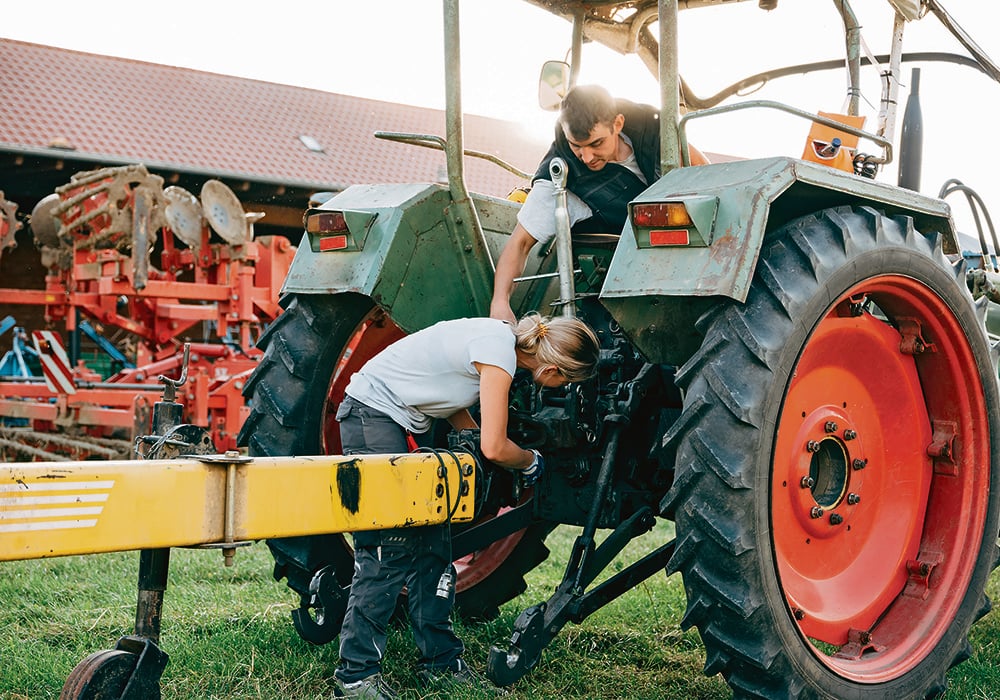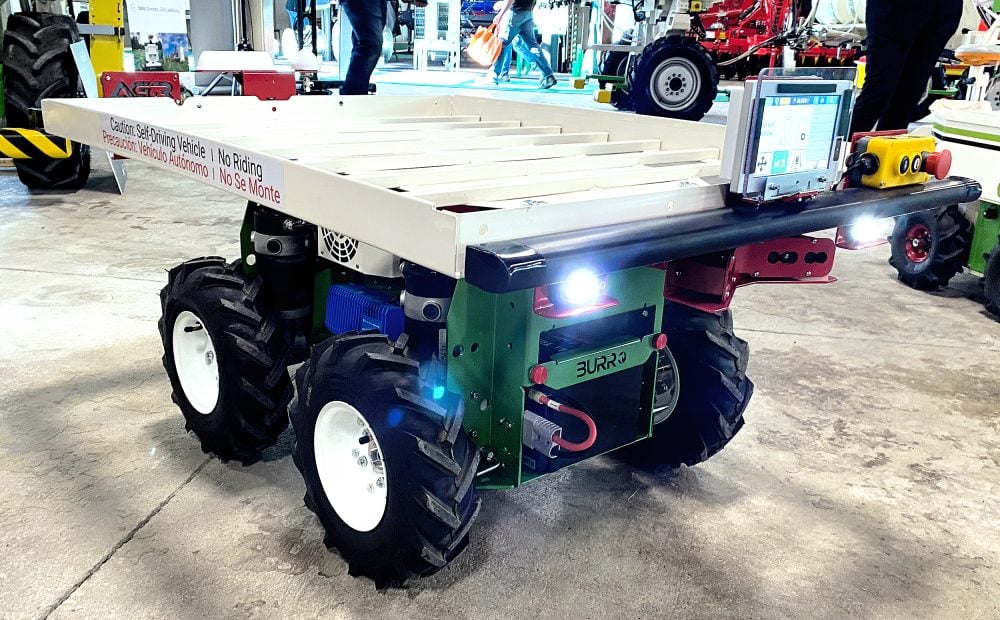European farmers have not embraced green policies

The push for more sustainable agriculture policies in Europe is accentuating the complex relationship between member states and the European Commission, said a trade expert based in Brussels.
Read Also

Diminutive Burro packs a big AI robotic punch
The Burro, a self-driving vehicle that can haul fruit, vegetables, seed and trailers, was unveiled at the London Farm Show…
Christina Kaul from Trade-Up, a network of international trade experts, said North Americans might view the EU as one big block but there is tremendous diversity among individual producers, within countries and among countries.
Why it matters: Many EU member countries have been hesitant to demand that farmers adopt more sustainable practices.
“Sustainability as such is very locally driven,” she said during a webinar hosted by the Canadian Agri-Food Policy Institute.
The commission took that diversity into account during its most recent changes to the Common Agriculture Policy. It directs its members toward sustainability but gave them more flexibility in their plans to implement it.
“So we’re really in the first year of implementation and one has to say the results are not very convincing,” said Kaul.
Many members have been hesitant to push sustainability and instead opted to continue existing practices with a bit of a greenwash. Others, such as the Dutch, were more courageous, she said.
Germany had to submit its national proposal to the commission three times before approval because the environmental measures it contained were not considered strong enough.
“When finally the Germans got their plan adopted by the commission, then they had a couple of programs where they almost had zero applications from farmers. The farmers were just not interested in taking these type of measures up,” Kaul said.
“So it just shows that it’s very complex between farming communities, national governments and the commission.”
In the EU, many experts believe agriculture isn’t doing enough to reduce emissions. Emission levels are stagnant but not reduced, thus the push for more radical measures. But Kaul said the last CAP reforms were made only a year ago and will last until 2027.
She doesn’t expect anything to happen until then but wonders what the next steps will be.
“I think that we have to see what will the commission propose, how far will member states be ready to go, and who will finance the whole change of policy direction,” Kaul said.
Most are on the same page when it comes to sustainability at a broad level, “but once you talk about concrete policy implementation proposals, the gap is huge.”
Sofia Sanchez Manzanaro covers agricultural policy for S&P Global in Brussels. She said farmer protests often happen cyclically but are gaining momentum. The main trigger is usually a national issue in a particular country even though all farming is ruled by the CAP.
Income struggles, particularly for small farmers, the impacts of climate change, new regulations, aging farmers and trade threats are all concerns right now.
While the Farm to Fork strategy is contributing to concerns, she said many proposed initiatives within that strategy were never enacted.
A commission election is expected in June and some of the ambitious plans have been abandoned because of pushback, she said.
Current president Ursula von der Leyen has announced consultation with farmers to discuss their concerns. Manzanaro said that dialogue should have taken place when all the plans were being formulated.
“I don’t know what’s going to come out of it. I think it’s quite politically motivated because of the moment this has been launched, just a few months before the election, and it has been launched also by the president of the European Commission herself, who doesn’t get involved usually in agri policy,” she said.
“It really shows how much political capital is at stake with the farmer issues at the moment.”
Denmark is the first European country to seriously consider a carbon tax and recently appointed an expert panel to discuss three different models. Broad consultation with stakeholders is expected.
Kaul said that will include a discussion of who should pay the tax.
“Is it the farmer? Is it the consumer? Is it a public finance? Or is it all three of them? In what type of percentages? And I think once Danes have settled on something in that area, it will have a huge spillover effect on the EU,” she said.
Source: Farmtario.com

